by Mark Brinkerhoff
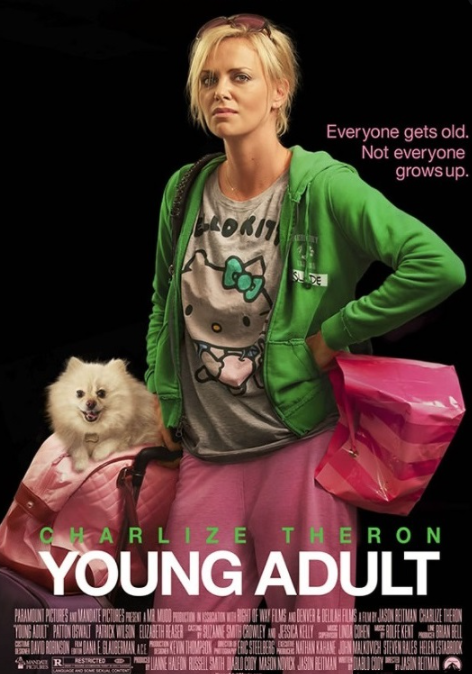 Where were you when you first saw—hell, even learned about—2011’s Young Adult? For me, it was at the Angelika, an arresting poster of a scowling Charlize Theron with the perfectly judged tagline:
Where were you when you first saw—hell, even learned about—2011’s Young Adult? For me, it was at the Angelika, an arresting poster of a scowling Charlize Theron with the perfectly judged tagline:
“Everyone gets old. Not everyone grows up.”
Boy, if that ain’t the truth...
Young Adult opened nationwide on this day a full decade ago (!!!) to rather muted buzz but with a pedigree that couldn’t be denied: Conceived by the brilliant, Oscar-winning screenwriter, Diablo Cody (on the heels of her cult-masterwork, Jennifer’s Body), and helmed by Jason Reitman, following up his Oscar-nominated Up in the Air while re-teaming with Cody after their similarly lauded Juno, Young Adult managed to assemble an incredibly rich ensemble of under-sung or underrated character actors—yes, including those inhabiting the body (and careers) of movie stars (Theron and Patrick Wilson)...
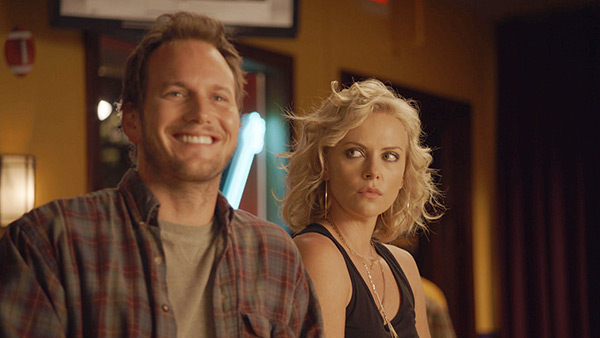
It’s a pitch-perfect cast that SAG-dreams are made of. (Naturally the SAG Awards did not nominate this ensemble.) Acidic you could call the film itself. Acrid, most definitely.
An ultra-dark, brisk 93-minute comedy, Young Adult follows a floundering Y.A. writer in Minneapolis, Mavis Gary (Theron), who abruptly (and brazenly) opts to return home to the small town she ditched years ago, on a deranged mission to win back her old boyfriend (Wilson)…long since (happily) married and newly a (proud) father. The hare-brained scheme goes as well as one would expect, which is to say disastrously. Awkward encounters, embarrassing outbursts, humiliating run-ins, and tone-deaf, delusional confessions occur, one after another—breathtakingly at times. In between we’re made witness to unexpected alliances (Patton Oswalt and Collette Wolfe shout-out!), moments of puncturing truth and clarity, and more than a few heartbreaking admissions that put seemingly everyone in their proper (albeit uncomfortable) place.
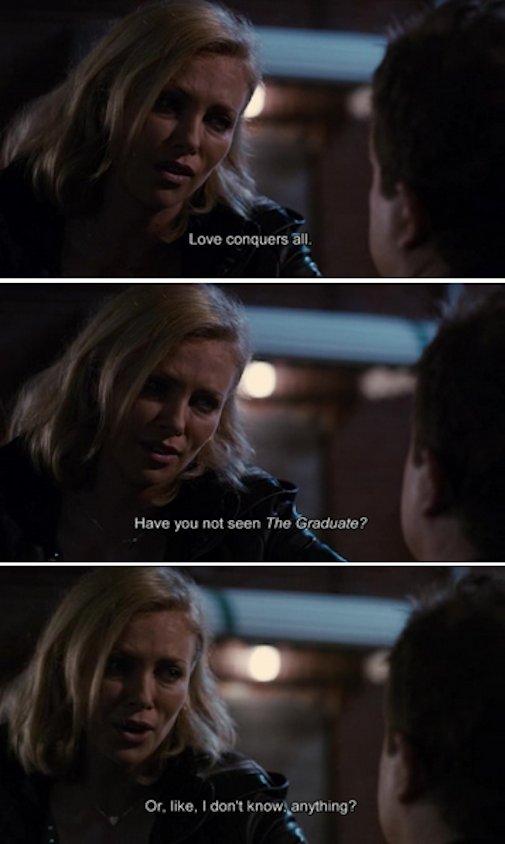
That this is all played for laughs, skating on a knife’s edge of tragicomedy, and pulls it off is as wild as it is audacious. That it succeeds at all—and holds up to this day—is frankly a miracle.
There are a lot of ways a hurdling, curdling storyline like Young Adult’s could’ve gone dreadfully wrong. Credit, of course, goes to the filmmakers, but the lion’s share of its success as a coherent, compelling narrative lies with its star, whose voiceover begins and ends the film with such assurance that we’re locked into whatever crazy ride she could take us along next. It’s a tightrope of a star turn, and Theron handles it expertly—a feat she would replicate, incidentally, in the Cody-penned, Reitman-directed Tully just a few years later. Clearly this is a creative collaboration that pays off.
As foggy a recollection as it may be now, the late 2000s/early 2010s were quite a fallow period for Theron. Pre-Young Adult, you were more likely to see her in Dior ads than in anything worthy of her talents. With the exception of the now-largely forgotten Hancock, her post-Oscar filmography leading up to Young Adult appears littered with ill-conceived projects (notably Æon Flux) and blink-and-you-missed-them endeavors (In the Valley of Elah, The Burning Plain, The Road) that either barely got released or hardly featured her at all. Young Adult, by contrast, proved to be a fabulous, ideal showcase and, arguably, a career renaissance that Theron amply capitalized on with Snow White and the Huntsman (in which she’s the standout), Atomic Blonde, the aforementioned Tully, The Old Guard, and most especially Mad Max: Fury Road ensuring her legacy and enshrining her in the public consciousness as an iconic screen star. For someone so renowned for her beauty, Theron is admirably unafraid to get ugly in character, no more so than as Mavis.
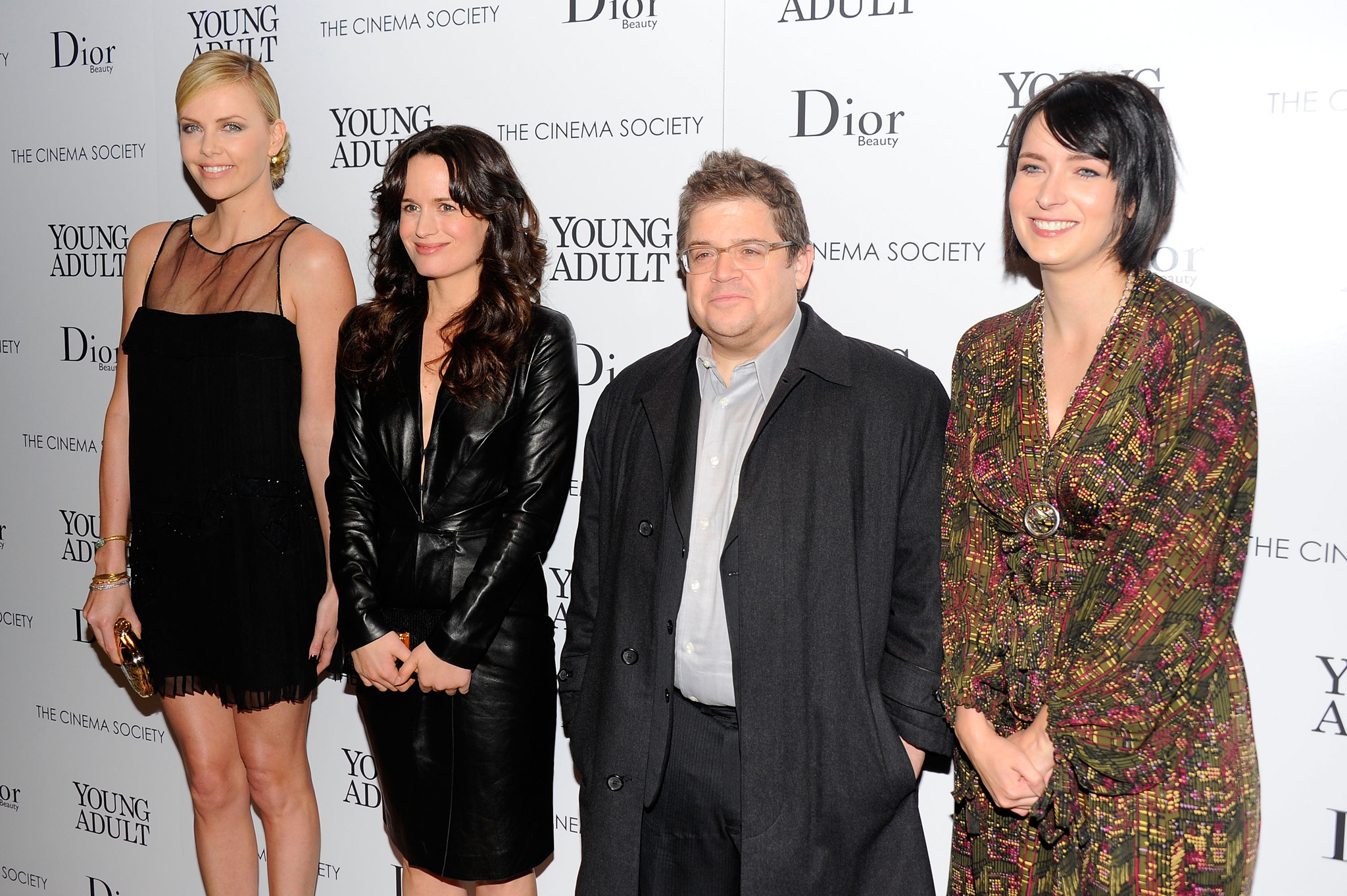 all smiles at the premiere
all smiles at the premiere
Rewatching Young Adult this week, perhaps the most indelible quality that made it land so well then and still hold up now is the prickliness of truth that informs the storyline. Cody and company pull no punches, and even the polite townsfolk who could come across as weak rubes are far more knowing and nuanced than a lesser, more condescending film might portray them. (Don’t mistake their kindness or tact for spinelessness.) In fact, no one’s perfect, right down to the negligent dog owner, derelict daughter, disinterested friend, and self-destructive force that Mavis is given to be.
There is comeuppance, but there’s no redemption; not for Mavis. Redemption doesn’t fit her narrative any more—or less—than Mercury, Minnesota does her character (which is not at all). So, when she peels out of the Hampton Inn in her smashed-up Mini Cooper, she’s not moving forward with any newfound sense of direction, purpose or wisdom, she’s simply moving on from a place she physically fled and always fancied herself above anyway. That Diana Ross’ "When We Grow Up" play over the end credits is on-the-nose yet fitting. It may not be subtle but works in the context of Young Adult. “I like what I look like, and you’re nice small; we don’t have to change at all”—that’s Mavis for you, in a nutshell.
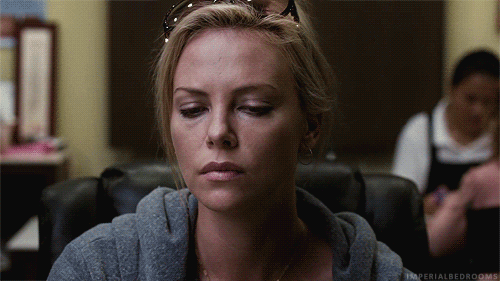
Young Adult is streaming on Showtime.